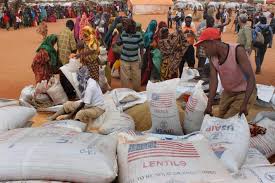At a time when leading Western nations such as the United States, the United Kingdom, France, and Germany are scaling back their development aid and adopting tougher stances on migration, Spain is moving in the opposite direction expanding engagement, deepening ties, and redefining its relationship with Africa. Madrid’s unique approach reflects both pragmatism and principle: a recognition that Africa’s progress is closely linked to Europe’s own stability, prosperity, and security.
This week, the Spanish capital is hosting AfroMadrid 2025, a world conference on people of African descent organized with the backing of the African Union. The gathering will explore themes of restorative justice and the creation of a new development fund a clear signal that Spain’s socialist-led government is determined to foster a new, inclusive partnership with the continent.
Prime Minister Pedro Sánchez’s administration has embarked on a series of strategic initiatives designed to elevate Spain’s role as a bridge between Europe and Africa. In late 2024, Madrid unveiled a comprehensive Spain-Africa strategy, outlining long-term goals to strengthen cooperation across key sectors — from trade and education to digital innovation and sustainable energy. In July 2025, Foreign Minister José Manuel Albares launched an advisory council of leading African and Spanish intellectuals, diplomats, and cultural figures to ensure the plan’s implementation remains transparent and impactful.
Spain’s commitment is not merely rhetorical. It is opening new embassies south of the Sahara, expanding education and business partnerships, and investing in development programs that target root causes of migration. The country’s tone also differs markedly from the increasingly restrictive language coming from other European capitals.
While acknowledging the political and logistical challenges of managing irregular migration, the Sánchez government speaks of “safe, orderly, and mutually beneficial” human mobility rather than building walls or tightening borders. It recognizes that Africa’s young population faces immense social and economic pressures that drive migration — and that solutions must lie in cooperation, not confrontation.
Last year, during a visit to Mauritania, Sánchez highlighted the critical role migrants play in Spain’s economy. “For us, migration is not only about solidarity and moral responsibility — it is also about rationality,” he said. This pragmatic approach underpins Spain’s circular migration programs, which allow workers from countries like Senegal, The Gambia, and Mauritania to take up short-term agricultural jobs in Spain before returning home. Such programs, first introduced in 2021, have been expanded significantly in recent years.
Spain has also funded training initiatives for unemployed youth and returned migrants, helping them acquire new skills and create sustainable livelihoods in their home countries. These projects form part of Madrid’s broader effort to reduce irregular migration while promoting shared prosperity.
However, migration is not the only area where Spain is distinguishing itself from its Western peers. Its foreign policy now views Africa as an integral partner rather than a peripheral concern. The foreign ministry’s 2024–2027 development cooperation plan designated West Africa and the Sahel as priority regions for the first time, placing them on par with Latin America — traditionally Spain’s main focus of international aid.
The strategy emphasizes infrastructure, energy transition, digitalization, youth employment, and education, alongside cultural diplomacy through expanded Cervantes Institute programs that promote Spanish language and academic exchange. It also stresses support for democracy, women’s empowerment, climate resilience, and regional security, particularly through backing institutions like the African Union and ECOWAS.
This support is timely. ECOWAS, which marks its 50th anniversary under growing pressure from military juntas in Burkina Faso, Mali, and Niger, has seen Spain emerge as one of its most vocal European allies. Madrid’s foreign ministry has underscored that “supporting the African diaspora and combating racism and xenophobia are also key priorities” — a message aimed at both domestic audiences and African partners.
Spain’s policies stand out amid rising anti-immigrant sentiment in Europe. In recent years, far-right groups such as Vox have gained ground in Spanish politics, capitalizing on fears surrounding migration. Incidents like the violent unrest in Murcia, where African workers were targeted after a local altercation, underscore the political sensitivity of the issue. Yet the government has resisted the temptation to adopt hardline rhetoric, choosing instead to stress unity, human dignity, and the shared benefits of cooperation.
Migration remains a complex challenge. More than 45,000 people attempted the perilous journey to Spain’s Canary Islands last year, many departing from the coasts of Senegal and Mauritania in overcrowded wooden boats. Thousands perished along the way, according to humanitarian groups. Others continue to risk their lives crossing the Mediterranean or scaling the fences of Ceuta and Melilla, Spain’s North African enclaves.
For Madrid, these tragedies underline the urgency of a smarter, more humane migration framework — one that addresses both the immediate humanitarian crisis and its underlying economic drivers. The Spanish government’s integrated approach, combining development aid, investment, and structured migration, offers a model that diverges sharply from the punitive strategies of other Western nations.
Historically, Spain’s colonial footprint in Africa was limited compared to other European powers. Its overseas ambitions were concentrated in Latin America, and for decades, Africa remained peripheral to Madrid’s foreign policy. But under Sánchez, that paradigm is shifting. As the closest European nation to Africa — separated only by the narrow Strait of Gibraltar — Spain now views the continent as central to its future.
In the words of Foreign Minister Albares, “Europe and Africa form part of the same geopolitical space.” This statement encapsulates Spain’s evolving vision: that shared geography and intertwined destinies demand collaboration, not isolation.
Whether this strategy will deliver tangible results remains to be seen, but at a time when many Western governments are retreating from engagement with Africa, Spain’s inclusive, forward-looking stance marks a bold and refreshing departure one that could redefine Europe’s relationship with its southern neighbour for decades to come.














Leave a comment